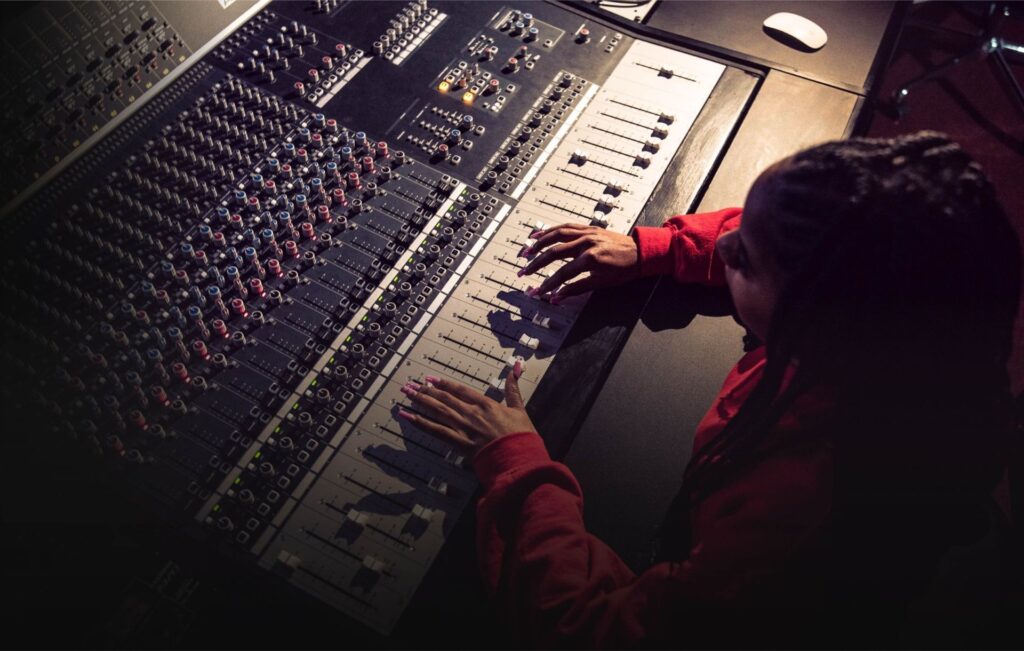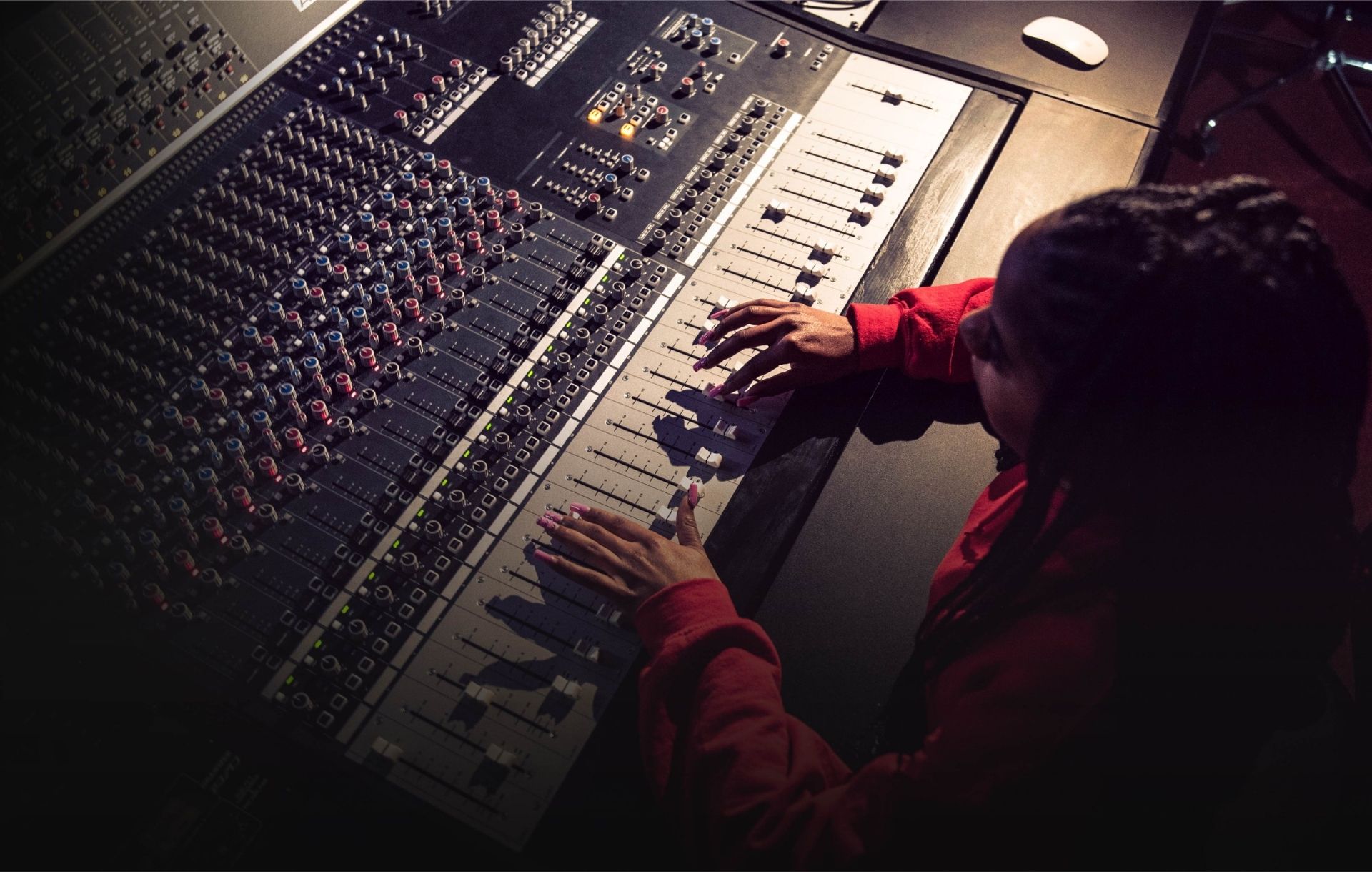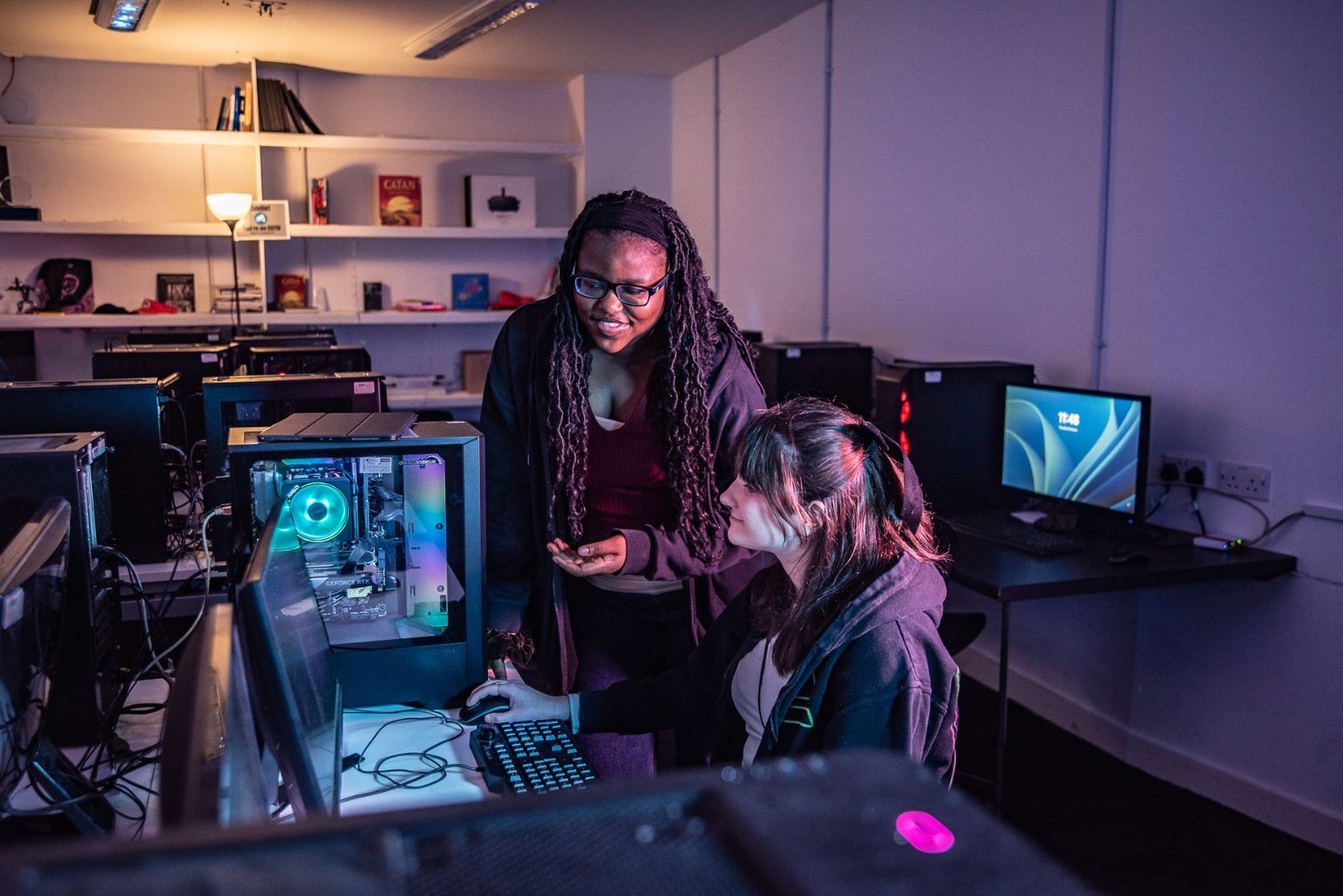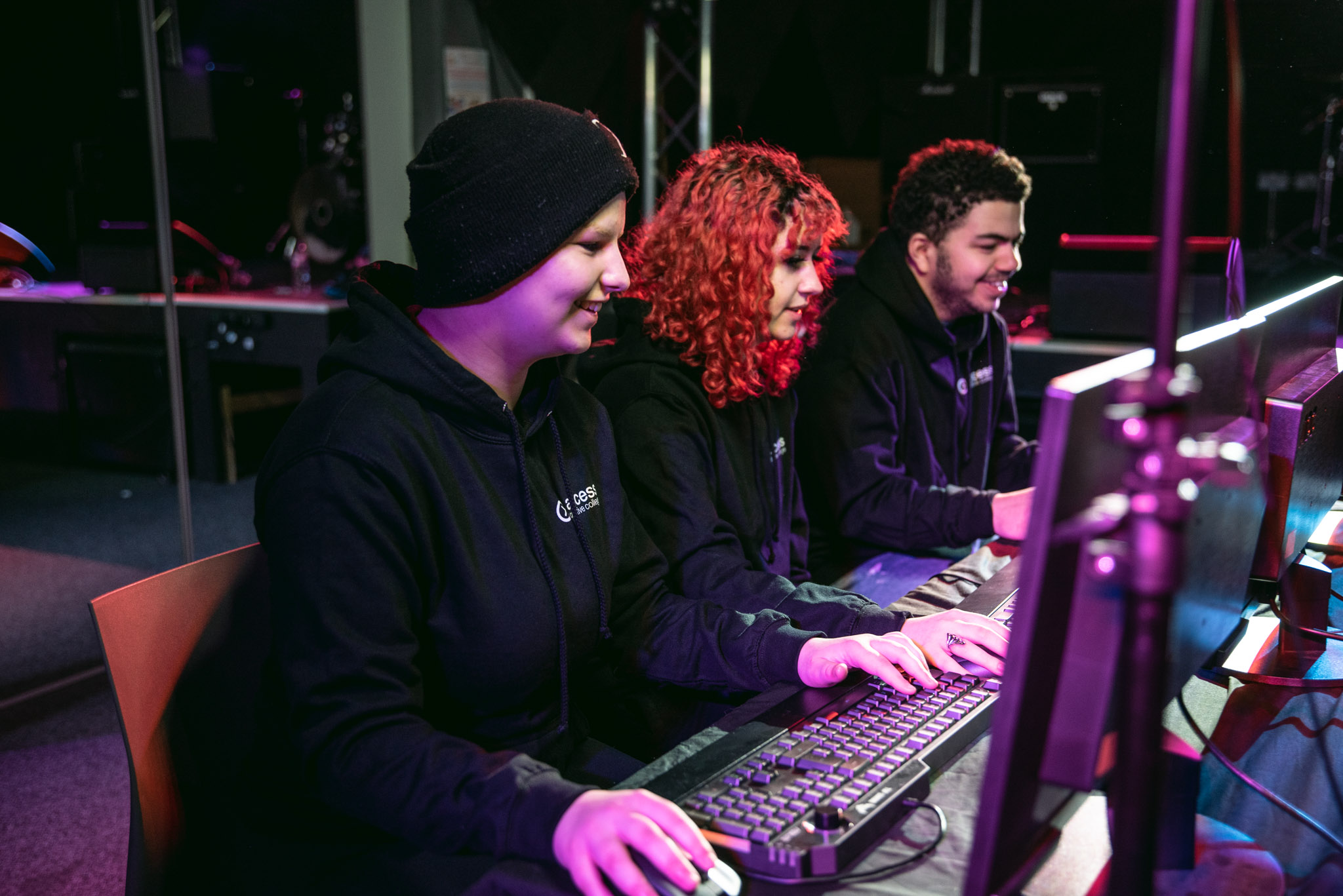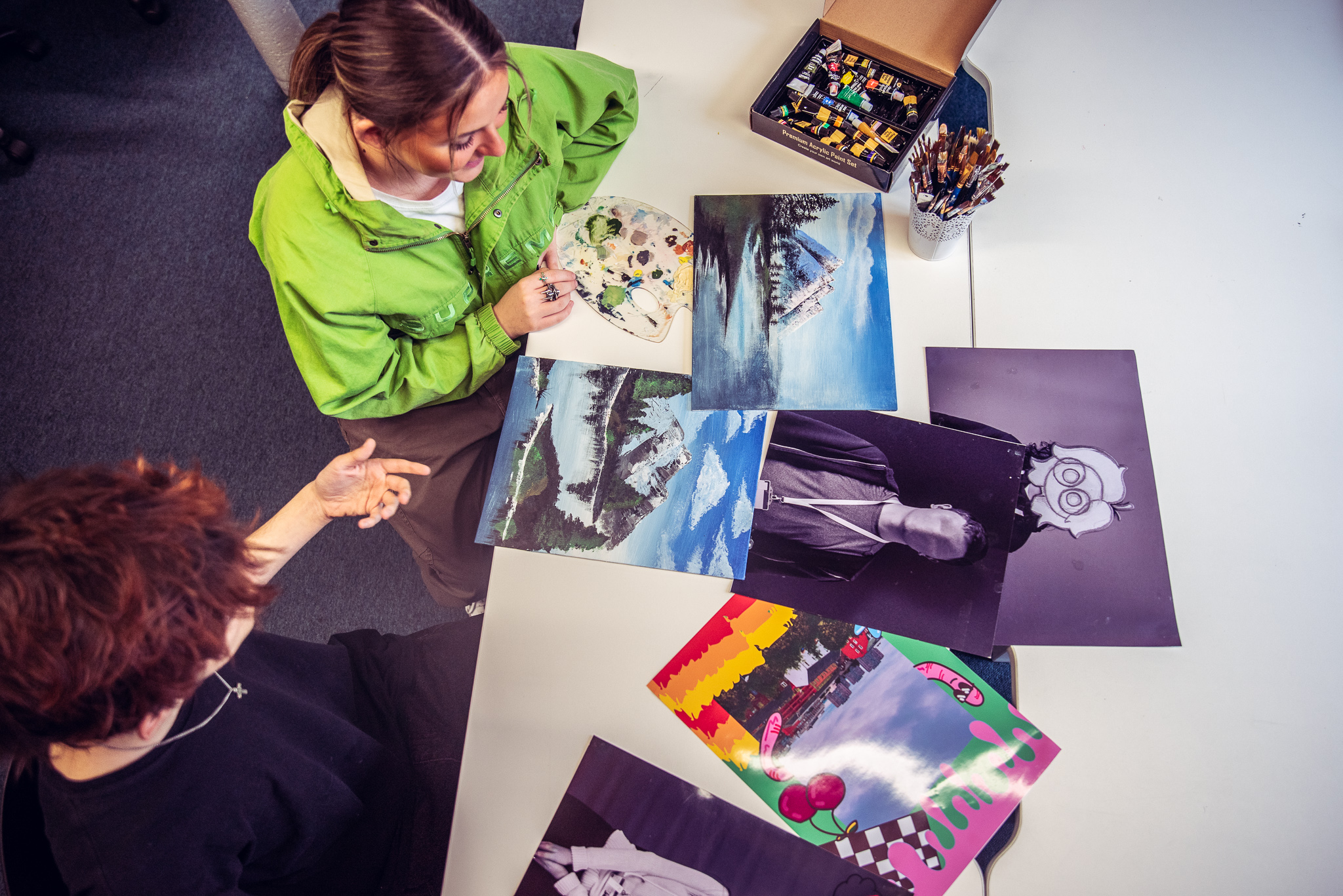The music industry is experiencing huge changes, and artificial intelligence is causing a seismic shift for musicians and record studios worldwide. From bedroom producers creating beats on their laptops to major record labels scouting the next breakthrough artist, AI has become an invisible tool shaping the sounds we hear every day. For aspiring musicians and producers, understanding AI isn’t just about keeping up with technology – it’s about unlocking creative possibilities that were unimaginable just a few years ago.
Today’s music professionals use AI in ways that might be surprising. Producers harness AI-powered plugins to perfect their mixes, analysing frequencies and suggesting improvements that would typically take years of experience to hear naturally. Streaming platforms like Spotify use AI algorithms to predict which songs will be popular, giving independent artists opportunities to reach global audiences without traditional gatekeepers.
Also, AI assists in everything from generating chord progressions and melodies to mastering tracks and even creating entirely new vocal effects. Artists like Holly Herndon and Grimes have pioneered using AI as a creative partner.
Whether you’re dreaming of producing the next chart-topping hit, performing on festival stages, or developing your unique artistic voice, AI tools are already reshaping how music is created, distributed and discovered.
This blog will explore how artificial intelligence and music are beginning to co-exist, examining how the industry is already using AI tools, and how you can harness them to accelerate your own creative journey.
What are AI music generators?
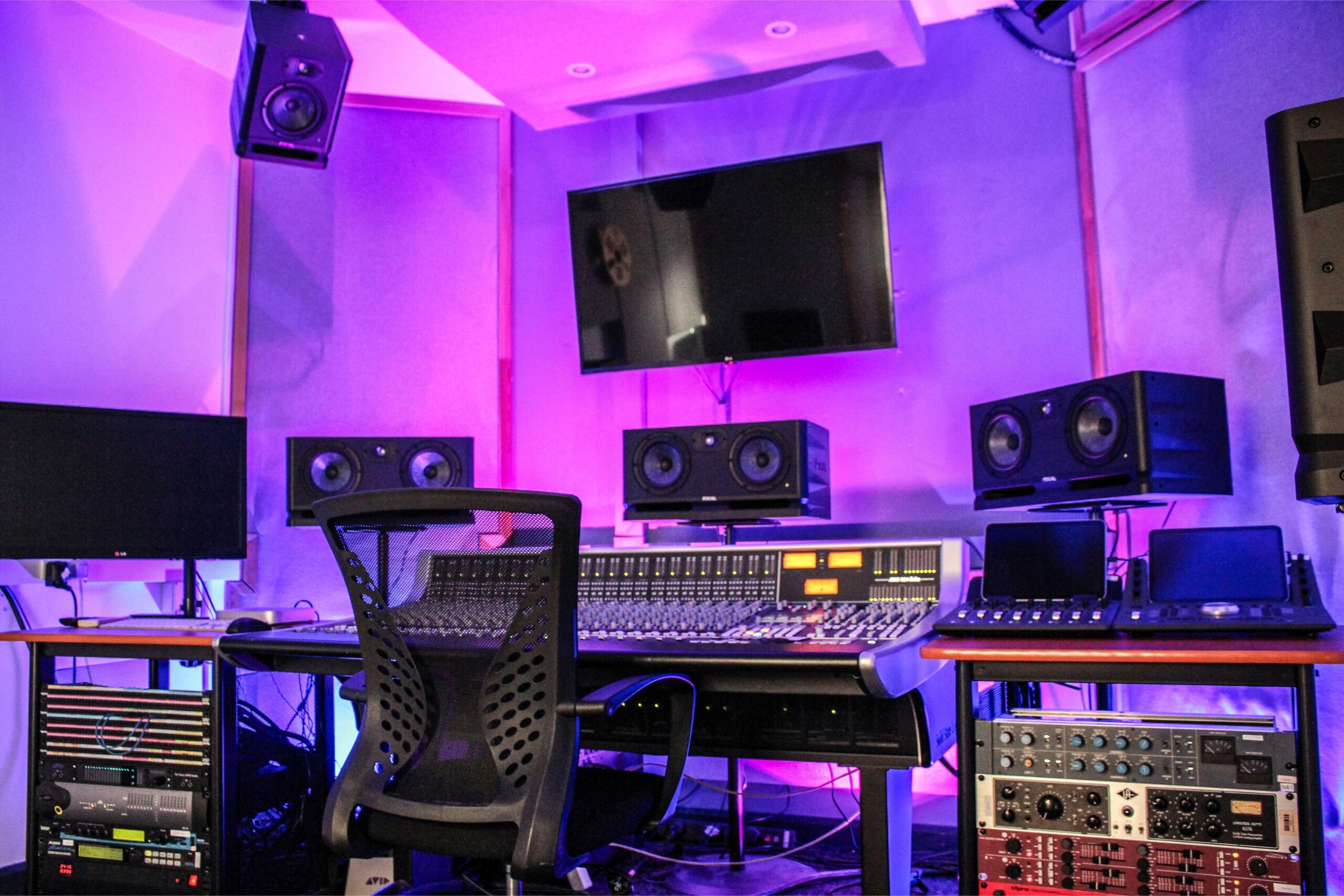
A new way of creating original music is by utilising AI music generators. They are sophisticated software tools that use machine learning algorithms to form simple melodies to full instrumental tracks.
These systems have been trained on vast libraries of existing music; analysing patterns, structures and relationships between notes, rhythms and harmonies across all songs and genres.
When you prompt an AI music generator, it draws on a deeper understanding to compose entirely new music that follows traditional and new conventions alike, while creating something unique. Think of them as having absorbed decades of music theory and composition knowledge, ready to collaborate with you at the click of a button.
The technology behind these generators varies, but most use neural networks (computer systems inspired by the human brain) to understand and recreate musical patterns. Some popular examples include:
- Mureka – An AI-powered music creation platform that allows users to generate, edit, and refine songs using text prompts and reference tracks.
- AIVA (Artificial Intelligence Virtual Artist) – Specialises in emotional soundtrack music that beginners or experienced music producers can utilise.
- Soundful – Creates royalty-free background tracks that users can develop using their vast library of sounds.
- Google’s MusicLM – This is an experimental tool that generates music from text descriptions. It’s basically ChatGPT for music production.
- Mubert – A generative music platform that creates endless streams of royalty-free music in real time. It partners with human musicians who contribute samples and loops, which the AI then combines and manipulates new tracks.
- Soundraw – Allows users to customise AI-generated music by adjusting individual sections of a track. Users can modify the energy, length and instruments of specific track segments.
- Landr – Originally known for its AI mastering services, Landr has expanded into music. It offers AI-powered tools for creating backing tracks and samples, while maintaining its strength in automated mixing and mastering that analyses your track and applies professional-grade music production.
- Beatoven – This tool focuses on creating customisable background music for videos and podcasts. It uses advanced mood-based generation, allowing creators to specify different emotions for various sections of their content, with the AI seamlessly transitioning between moods to match the narrative flow.
- Moises – Primarily an AI-powered music practice and separation tool that can isolate or remove vocals, drums, bass and other instruments from existing tracks.
- AI Music Generator – A straightforward web-based tool that creates original music tracks from text prompts or style selections. It offers various genres and moods, making it accessible for users who need quick musical solutions without complex customisation options.
- Sonauto – An AI music generator that transforms text prompts, lyrics, or even hummed melodies into full songs. It stands out for its ability to create longer-form musical compositions and its integration with various Digital Audio Workstations (DAWs).
- Udio – One of the most advanced AI music generators available, Udio creates complete songs with vocals, instruments, and production from simple text prompts. It excels at generating music across virtually any genre, from hip-hop and electronic to rock and classical.
- Suno – A powerful AI music creation platform that generates complete songs, including lyrics, vocals, melodies, and arrangements from text descriptions. Suno has gained significant attention for producing surprisingly professional-sounding tracks that capture specific moods, styles, and genres.
How AI is transforming music production
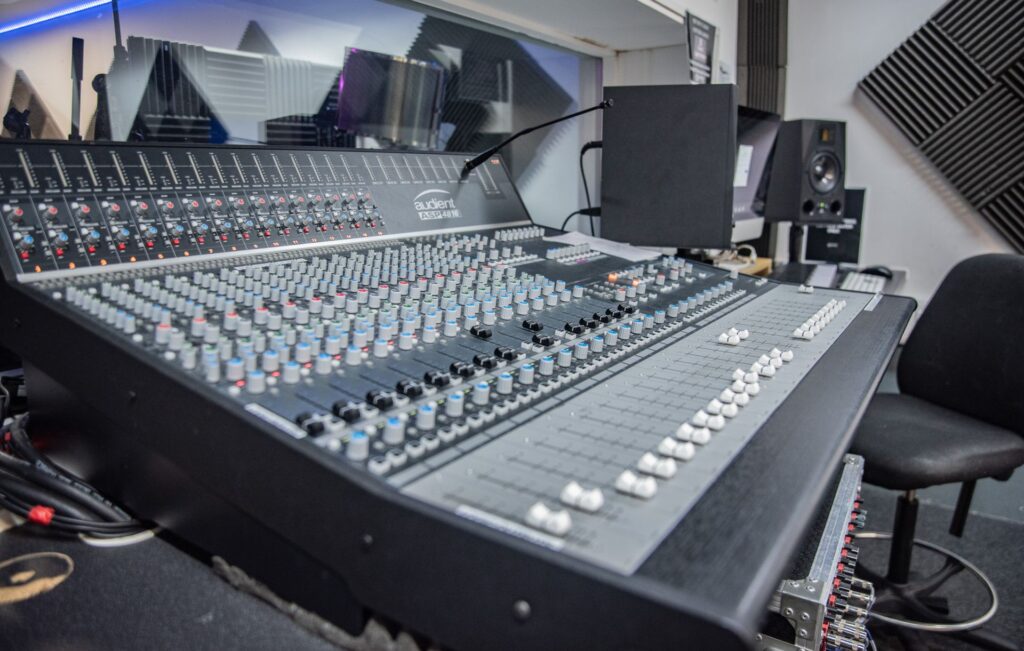
Beyond dedicated music generators, AI is revolutionising every stage of music production.
Modern Digital Audio Workstations (DAWs) now incorporate AI features that assist with tasks that once required extensive technical knowledge.
Mixing and mastering have been democratised through AI-powered tools that analyse your tracks and apply professional-level processing. Services like iZotope’s Ozone 12 use machine learning to identify issues in your mix and suggest corrections, making studio-quality sound accessible to producers at any skill level.
Not only that, but sample libraries have evolved with AI-powered search functions that understand musical concepts. You can now search for “melancholic piano loop in C minor” and find exactly what you need, or use tools that automatically match samples to your project’s key and tempo.
Virtual instruments are becoming increasingly realistic through AI. Modern orchestral libraries use machine learning to create more natural articulations and transitions between notes, while AI-powered synthesisers can morph between in ways that would be impossible with traditional synthesis methods.
Examples of AI-made music
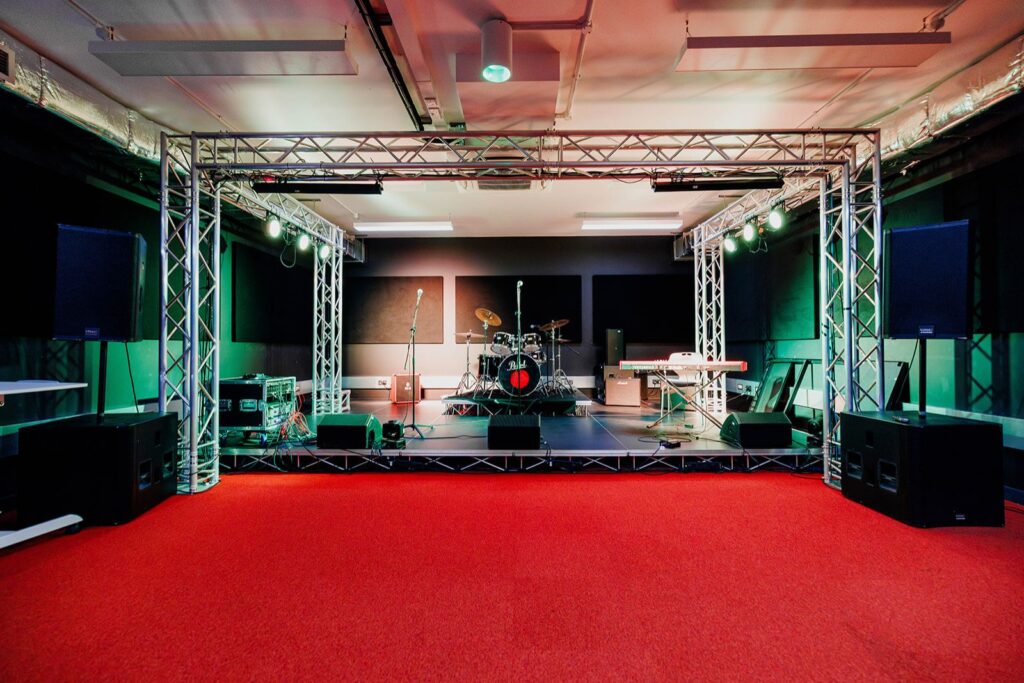
The ethics of AI-made music can be questioned, with some utilising the AI music generators to create deepfakes of musicians that have fooled the audiences of TikTok and Instagram.
One noticeable song was ‘Heart on My Sleeve’ created by TikTok user Ghostwriter977 using artificial intelligence. It cloned the voices of Drake and The Weeknd and was released on Spotify and Apple Music.
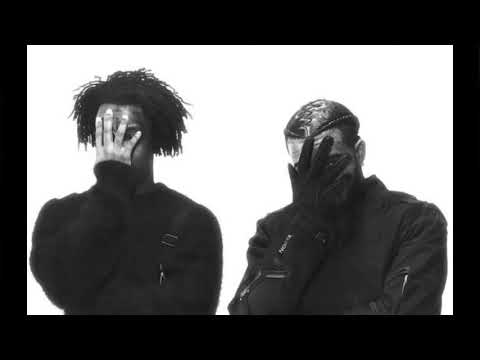
On the other side of the spectrum, there is obviously AI’d music like Sandy thee Squirrel, a play on a character from the childhood classic, SpongeBob SquarePants.
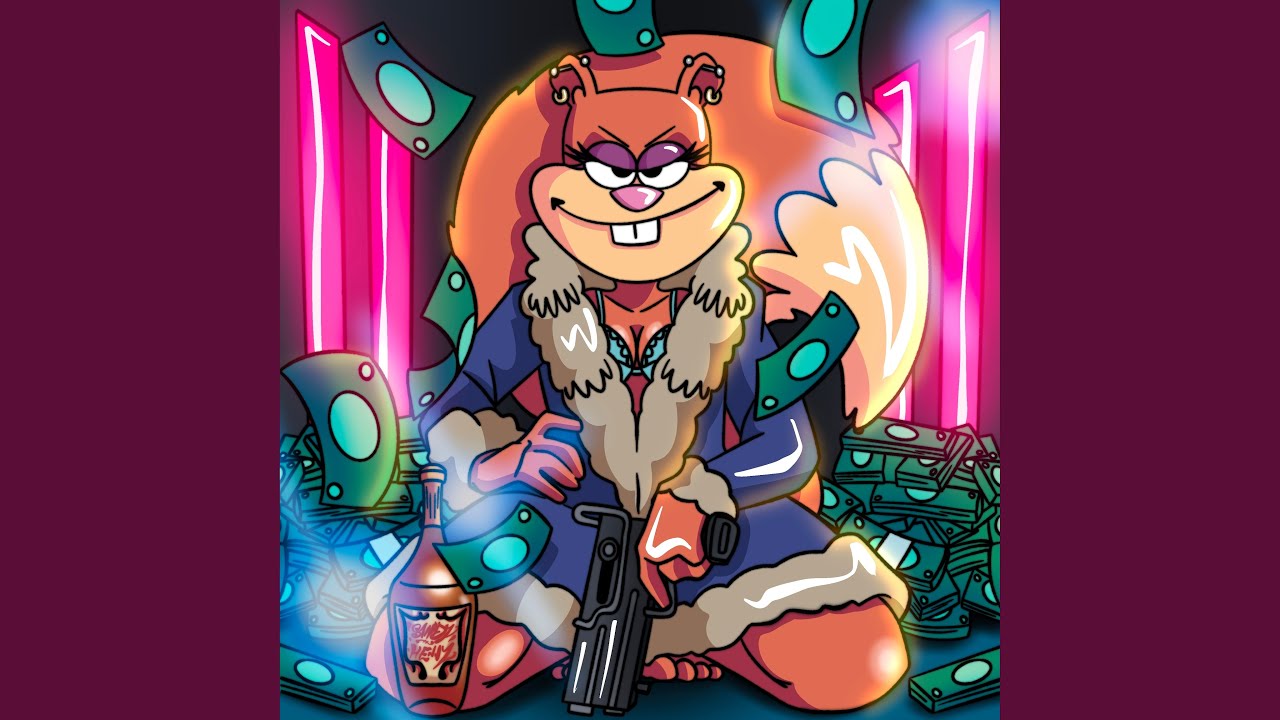
And now, there is a fully AI’d band from the visuals, the vocals, the beat, and even the backstory of the band has been developed using artificial intelligence with human direction. Velvet Sundown had hundreds of thousands of listeners before people started to realise it was fully AI-created, which has caused a controversy around AI-generated music.
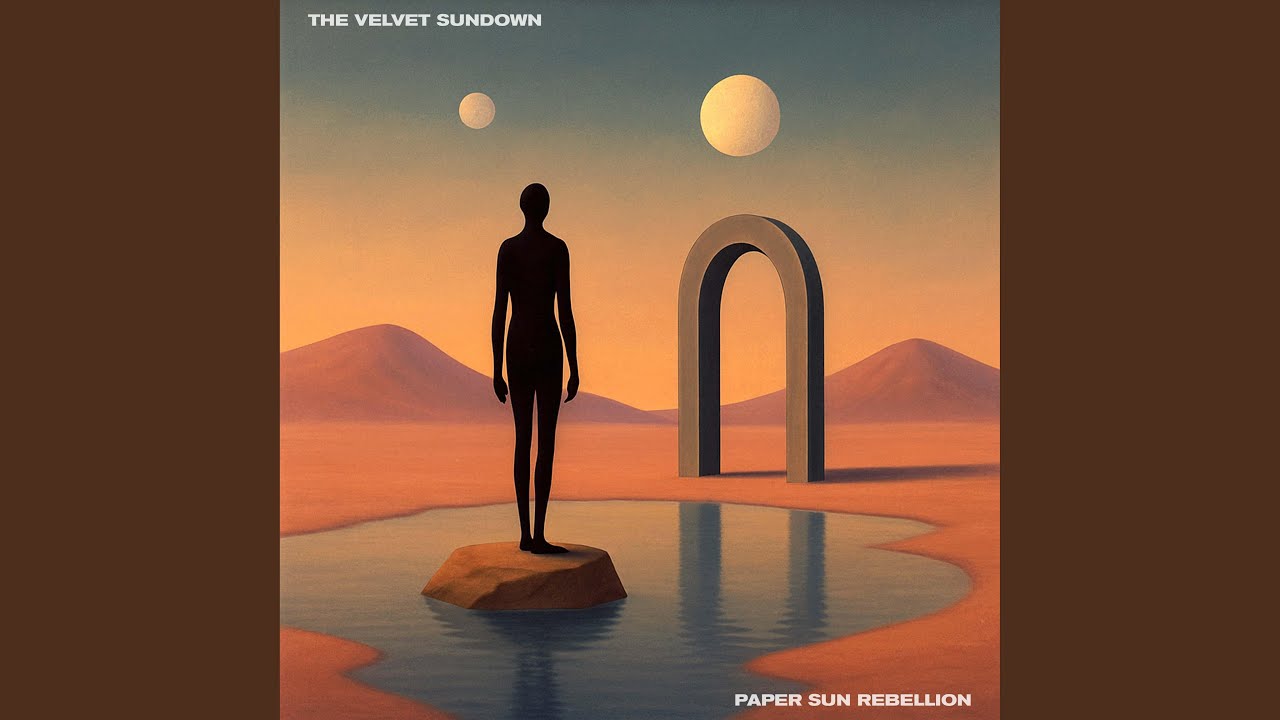
In fact, two-thirds (63%) of young creatives say they are embracing artificial intelligence (AI) to assist in the creative processes in music making. And with the flood of AI music on music streaming platforms, Spotify has said it’s waging war against a flood of low-quality AI content, removing more than 75 million “spammy” tracks in the past 12 months alone.
AI for music discovery
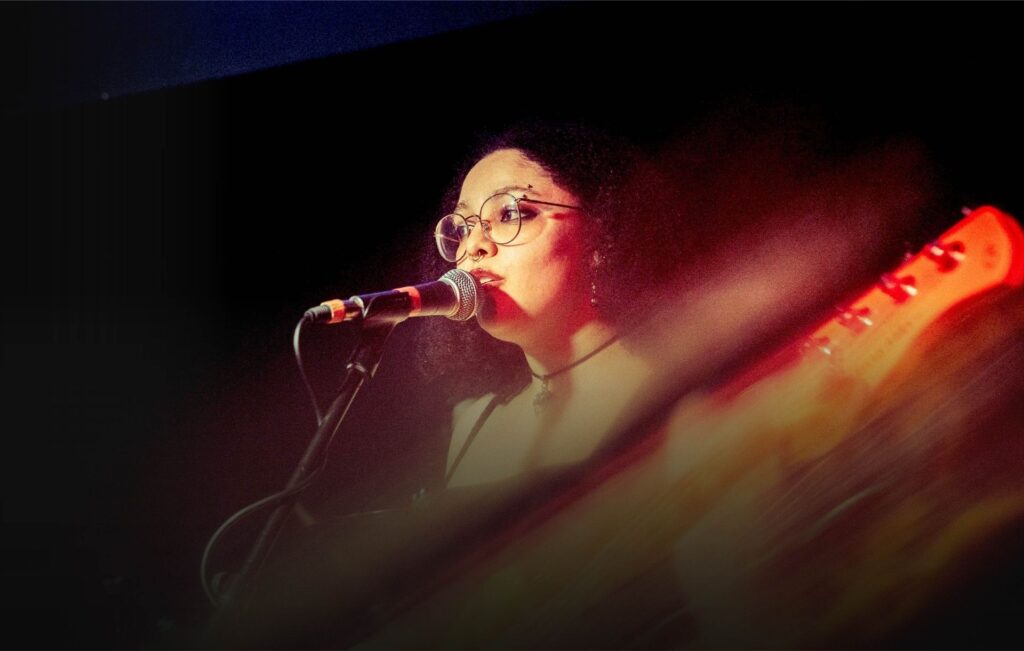
Recommendation engines driven by AI have emerged as a vital resource for music enthusiasts.
AI algorithms are used by platforms such as Spotify to create customised playlists by analysing user preferences, listening patterns, and contextual information.
AI helps musicians and music lovers find new songs that suit their likes by taking into account the user’s musical genre, tempo, mood, and behaviour patterns. Spotify’s “Discover Weekly” playlist, for instance, makes song recommendations based on a user’s listening history, allowing new musicians to reach a wider audience and attract new followers.
Not only that, but ChatGPT has partnered with Spotify to be able to give song recommendations based on the prompt. So if you’re looking for a specific song but nothing on your playlist is hitting the mark, you can now ask ChatGPT: “Spotify, I need a song that will bring happy vibes to a road trip”, and recommendations will follow!
Study Music at Access Creative College

If you’re looking to kick-start your music education, at Access Creative College, we provide levels 2, 3, and 4 in numerous music courses:
- Level 2 Music Performance and Technology
- Level 2 Music Performance and Vocal Artist
- Level 2 Music Technology
- Level 3 Music Performance
- Level 3 Music Production
- Level 3 Vocal Artist
- Level 4 Artist Development
To find out how we can help you grow as a musician, book an open day and come meet our campuses and our creative music tutors.


